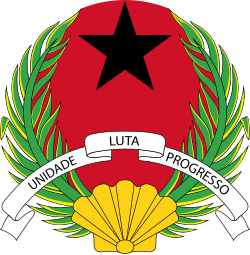 |
|---|
The Constitution of Guinea-Bissau is the basic law governing Guinea-Bissau. It was adopted in 1984, came into force on 6 May 1984, and revised in 1991, 1993 and 1996.[ citation needed ]
 |
|---|
The Constitution of Guinea-Bissau is the basic law governing Guinea-Bissau. It was adopted in 1984, came into force on 6 May 1984, and revised in 1991, 1993 and 1996.[ citation needed ]